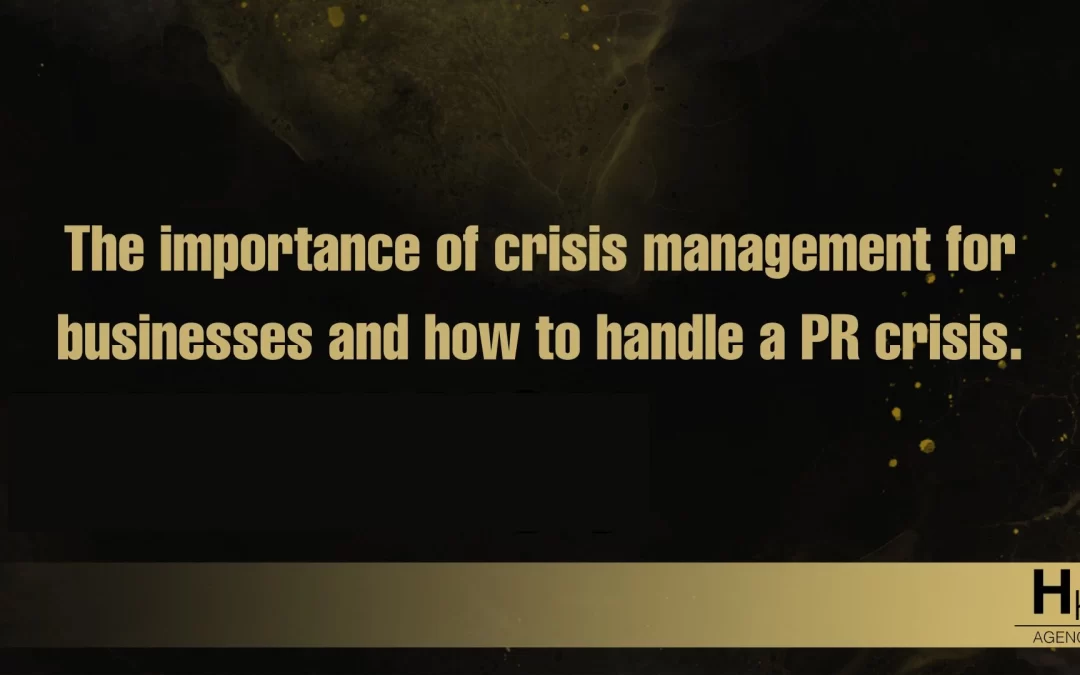As a public relations firm, HighKey Agency knows firsthand the importance of crisis management for businesses. In today’s world, where news and information can spread quickly and have a significant impact on a company’s reputation, having a plan in place for handling a PR crisis can be critical to a business’s success.
Here are a few reasons why crisis management is important for businesses:
- A PR crisis can have a major impact on a company’s reputation and bottom line. In today’s highly connected world, a single negative story or incident can quickly spread and cause significant damage to a company’s brand and financial performance.
- A well-managed crisis can help protect a company’s reputation and minimize the damage. By having a plan in place and responding quickly and effectively to a crisis situation, a company can control the narrative, limit the spread of negative information, and mitigate the potential negative impact on its reputation.
- Crisis management can help a company maintain trust and credibility with its stakeholders. In times of crisis, stakeholders such as customers, employees, investors, and the media will look to the company for information and reassurance. By having a crisis management plan and responding effectively, a company can demonstrate its commitment to transparency and accountability, which can help maintain trust and credibility.
If your company is facing a PR crisis, here are a few steps you can take to handle the situation:
- Assemble a crisis management team. This team should include key members of your company’s leadership and communication teams, as well as any external partners or advisers who can provide support and guidance.
- Develop a crisis management plan. This plan should outline the steps your company will take to respond to a crisis situation, including who will be responsible for each step and how you will communicate with your stakeholders.
- Monitor the situation and gather information. Keep a close eye on the situation and gather as much information as possible. This will help you understand the full extent of the crisis and identify any potential risks or challenges.
- Communicate with your stakeholders. It’s important to keep your stakeholders informed during a crisis situation. Be transparent and honest in your communications, and make sure to provide regular updates as the situation develops.
- Take action to address the crisis. Once you have a clear understanding of the situation, take the necessary steps to address the crisis. This may include issuing a public statement, implementing damage control measures, or taking other actions to mitigate the potential impact on your company’s reputation.
In conclusion, crisis management is an essential part of a successful business. By working with a PR firm like HighKey Agency, you can develop a crisis management plan and have the support and expertise you need to handle any potential PR crisis situations. By being prepared and responding effectively, you can minimize the potential negative impact on your company’s reputation and maintain trust and credibility with your stakeholders.

